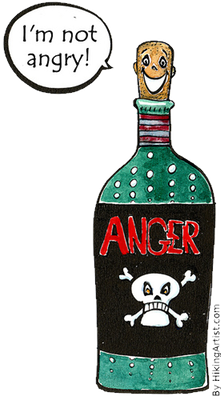Proactive Anger Management
 Many children arrive at school angry or are angered by what they experience there. Teachers and school administrators
may not always be able to pinpoint the source of the anger, but we have the
responsibility to help children learn to control and to express anger
appropriately.
Many children arrive at school angry or are angered by what they experience there. Teachers and school administrators
may not always be able to pinpoint the source of the anger, but we have the
responsibility to help children learn to control and to express anger
appropriately.
Some
experts believe that, rather than waiting until aggression and violence has occurred and then
devoting increased resources to hiring additional school resource officers,
creating in-school suspension centers, suspending or expelling students, a more
effective approach would be to redirect resources to the implementation of
violence prevention programs, particularly for young children and
pre-adolescents (see for example www.cfchildren.org).
Educators,
parents and others "reduce" the chance of violence in our youth when we give
them the ability to arrive at nonviolent
solutions to problems that may drive anger by teaching them skills such as:
- problem-solving
- stress
management
- assertiveness
- anger
control
- impulse
control
If an angry child is left alone to deal with feelings of hostility, the result
can be (as per apa.org):
- poor
school performance
- interpersonal
conflicts
- verbal or physical assaults
Image by flickr user HikingArtist
Licensed under the Creative Commons Attribution Non-commercial Share Alike 3.0 License
Brought to you by CReducation.org